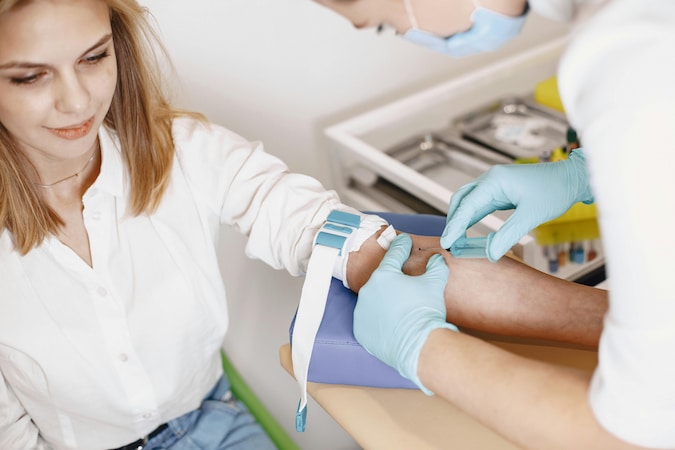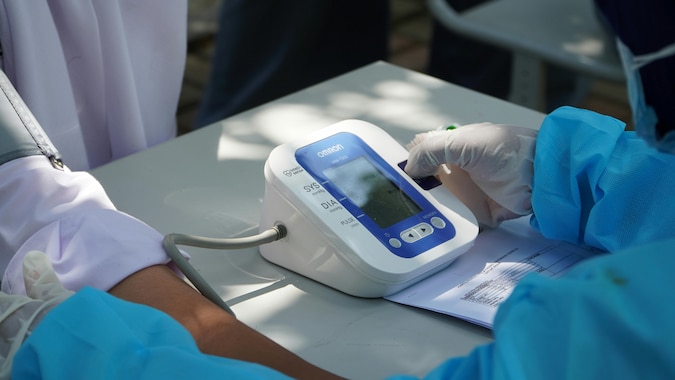
Preventive Health Screenings for Long-Term Wellness

Preventive health screenings are crucial for identifying potential health risks early and ensuring timely treatment. Learn which screenings are essential for different age groups and risk factors and how SelfGood can help you with affordable health coverage.
In today’s fast-paced world, it’s easy to overlook regular checkups, but preventive health screenings are essential for staying ahead of potential health risks. SelfGood emphasizes the importance of proactive health management through screenings tailored to age, lifestyle, and family history. By taking preventive measures, individuals can avoid long-term health issues and maintain overall wellness.
Key Takeaways:
- Preventive screenings detect health risks before symptoms appear.
- Regular screenings can catch diseases like cancer, heart disease, and diabetes early.
- Age, lifestyle, and family history determine the recommended screenings.
- Being proactive with health can save time, money, and improve quality of life.
Why Preventive Screenings Are Essential for Your Health

Preventive screenings are medical tests that detect health problems early, allowing for timely interventions. Whether it’s screening for high blood pressure, cholesterol, or cancer, early detection is key to improving treatment outcomes and avoiding complications.
Early detection not only improves survival rates for conditions like cancer but can also prevent long-term health complications from chronic diseases like diabetes or heart disease1. Many conditions can be managed or even prevented when caught early through regular screenings.
Preventive screenings are cost-effective in the long run. Detecting and treating diseases early often means fewer medical interventions and lower healthcare costs2.
How Preventive Screenings Work
Preventive health screenings function by identifying potential health risks before they become symptomatic. Your healthcare provider will recommend specific tests based on your age, medical history, and lifestyle. Screenings often include routine blood tests, imaging (such as X-rays or MRIs), and physical exams.
For example, a cholesterol test can reveal high levels that increase your risk for heart disease, while a colonoscopy can detect colon cancer before it becomes symptomatic. The goal of these screenings is early diagnosis, which significantly improves the chances of successful treatment3.
Recommended Screenings by Age Group
Screenings for Young Adults (Ages 18-39)
Young adults should prioritize preventive care, especially for conditions that can develop silently over time. Regular screenings for blood pressure, cholesterol, and mental health are recommended. Additionally, sexually active individuals should get tested for STDs regularly.
- Key Screenings: Blood pressure checks, cholesterol tests, STD screenings, mental health assessments
Screenings for Middle-Aged Adults (Ages 40-59)
In this age group, more advanced screenings become necessary. Mammograms for breast cancer, colonoscopies for colorectal cancer, and blood glucose tests for diabetes are recommended. Men should consider prostate exams, and women should begin screenings for osteoporosis.
- Key Screenings: Mammograms, colonoscopies, blood glucose tests, prostate exams, bone density tests
Screenings for Older Adults (Ages 60+)
As people age, annual cancer screenings become increasingly important. Regular tests for lung and colorectal cancer, cognitive assessments for dementia or Alzheimer’s, and bone density tests are essential. Vision and hearing exams should also be done regularly to maintain quality of life.
- Key Screenings: Lung cancer screening, cognitive screening, vision and hearing tests, bone density tests
Specific Screenings Based on Risk Factors
Screenings Based on Family History
If you have a family history of conditions like heart disease, diabetes, or cancer, your doctor may recommend more frequent or earlier screenings. Genetic predispositions can increase your risk, and screenings tailored to your history can prevent serious outcomes4.
- Key Screenings: Genetic testing, heart disease, cancer, and diabetes screenings
Lifestyle-Based Screenings
Lifestyle choices, such as smoking or a sedentary lifestyle, significantly influence which screenings you should prioritize. Smokers should get screened for lung cancer, while individuals who lead sedentary lives should undergo cardiovascular health checks and screenings for diabetes or obesity-related conditions5.
- Key Screenings: Lung cancer screening, cardiovascular health checks, diabetes screening, obesity-related screenings
Occupation-Related Screenings
People exposed to chemicals, radiation, or physically strenuous environments at work need specific health screenings. For instance, those working in industrial jobs may need regular respiratory tests, while office workers should get ergonomic assessments to prevent musculoskeletal issues6.
- Key Screenings: Radiation exposure tests, respiratory assessments, musculoskeletal screenings
How to Prepare for Preventive Screenings

Before Your Screening
Preparation is key to getting accurate results from your screening. You may need to fast, especially for blood tests, or provide a detailed medical history to your doctor. Check whether specific tests require you to abstain from food or medications before your appointment.
What to Expect During the Screening
Most preventive screenings are straightforward and include blood tests, imaging scans, or physical exams. Blood samples are often drawn to check for cholesterol, glucose levels, or other markers of disease. Imaging techniques like X-rays or ultrasounds are also common depending on the test.
Understanding Your Results
After your screening, it’s important to follow up with your doctor to understand the results. Your doctor will explain any abnormal findings and recommend further tests or lifestyle changes. Regular follow-up is crucial to ensure early intervention if needed.
Final Thoughts
Preventive health screenings play an indispensable role in maintaining long-term health. By detecting conditions early, you can prevent serious illnesses or manage them more effectively. Regular checkups and screenings allow you to stay on top of your health and avoid costly treatments in the future. Remember, proactive health management is an investment in your future well-being.
Frequently Asked Questions
What Are Preventive Health Screenings?
Preventive health screenings are medical tests used to detect health issues before symptoms appear. They are vital in catching diseases early and improving treatment outcomes.
Do I Need Screenings If I’m Healthy?
Yes. Even if you feel healthy, screenings are crucial for detecting conditions that may not show symptoms until they become more severe.
Are Preventive Screenings Covered by Insurance?
Under the Affordable Care Act, many preventive services are covered without out-of-pocket costs. However, it’s important to check your specific health insurance plan for details.
Sources:
- World Health Organization. (2020). Early detection of cancer. https://www.who.int
- Centers for Disease Control and Prevention. (2021). Benefits of screening. https://www.cdc.gov
- National Cancer Institute. (2021). Screening and early detection. https://www.cancer.gov




